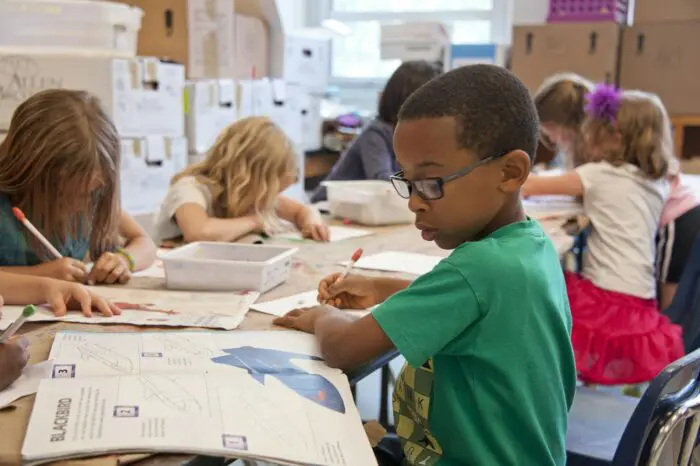WHO/Europe calls for schools to stay open – with appropriate prevention and response measures in place – as the WHO European Region reports 4 consecutive weeks of growing COVID-19 transmission, the only WHO region to do so. This accounted for 57% of new cases around the world in the third week of October.
Copenhagen, 29 October 2021
Last week, with winter fast approaching, more than half of the WHO European Region’s 53 countries reported a marked increase in COVID-19 infection rates across all age groups. While new cases increased by 18% in the Region, WHO’s 5 other regions reported a decline.
This triggered responses by national and local authorities in the Region. A total of 45 countries and territories recommended that schools remain open for in-person learning with infection prevention and control; 7 countries opted for full or partial school closures, either at a national or subnational level; and 2 countries recommended distance learning.
Our message is clear
If and when restrictions are imposed to decrease or control transmission, schools should be the last places to shut their doors and the first to reopen with appropriate infection prevention measures. In short: interrupting children’s education should be a last resort.
“Last year’s widespread school closures, disrupting the education of millions of children and adolescents, did more harm than good, especially to children’s mental and social well-being. We can’t repeat the same mistakes,” says Dr Hans Henri P. Kluge, WHO Regional Director for Europe.
Instead of closing educational institutions, WHO recommends a whole-of-society approach to reducing transmission through a wide range of measures, depending upon the level of transmission, in places where it occurs. This includes schooling environments, where physical distancing, cleaning hands frequently, wearing masks, ensuring adequate ventilation in classrooms and increasing access to testing are important, particularly in high-prevalence settings.
“To reduce the impact of COVID-19 in the coming months, it is vital that decisions by governments and the public alike are based on data and evidence, with the understanding that the epidemiological situation can change, and that our behaviour must change with it. Science must trump politics, and the long-term interests of children must remain a priority – especially now that a number of countries are seeing a spike in transmission. We have more efficient tools to address this spike than closing schools,” adds Dr Kluge.
This is echoed by Ms Julie Green, a headteacher who works with children aged 4 to 11 at the Baxenden St John’s Church of England Primary School in Lancashire, United Kingdom.
“Returning to school with face-to-face learning from their teachers has been the one certainty for many children during an uncertain time. As an educator and a mother, I believe that children learn best in the classroom. The pandemic isn’t over and, of course, we must put in place measures to keep children and teachers as safe from the virus as possible, but schools should remain open for the sake of children’s learning and overall development,” says Ms Green.
Teachers are true heroes in our communities. In addition to vaccinating priority population groups and teachers, WHO and the European Technical Advisory Group of Experts on Immunization (ETAGE) recommend vaccinating young people aged 12 to 17 years who have underlying medical conditions or who are in contact with immunocompromised adults.
WHO recommends the use of the Pfizer/BioNTech vaccine for those aged 12 to 17. For children under 12, WHO will issue further guidance on the use of vaccines as and when new evidence from vaccine trials emerges.
To date, 76 million cases of COVID-19 and 1.4 million deaths have been reported in the WHO European Region.
For further information, contact:
WHO/Europe Press Office
Email: eupress@who.int







